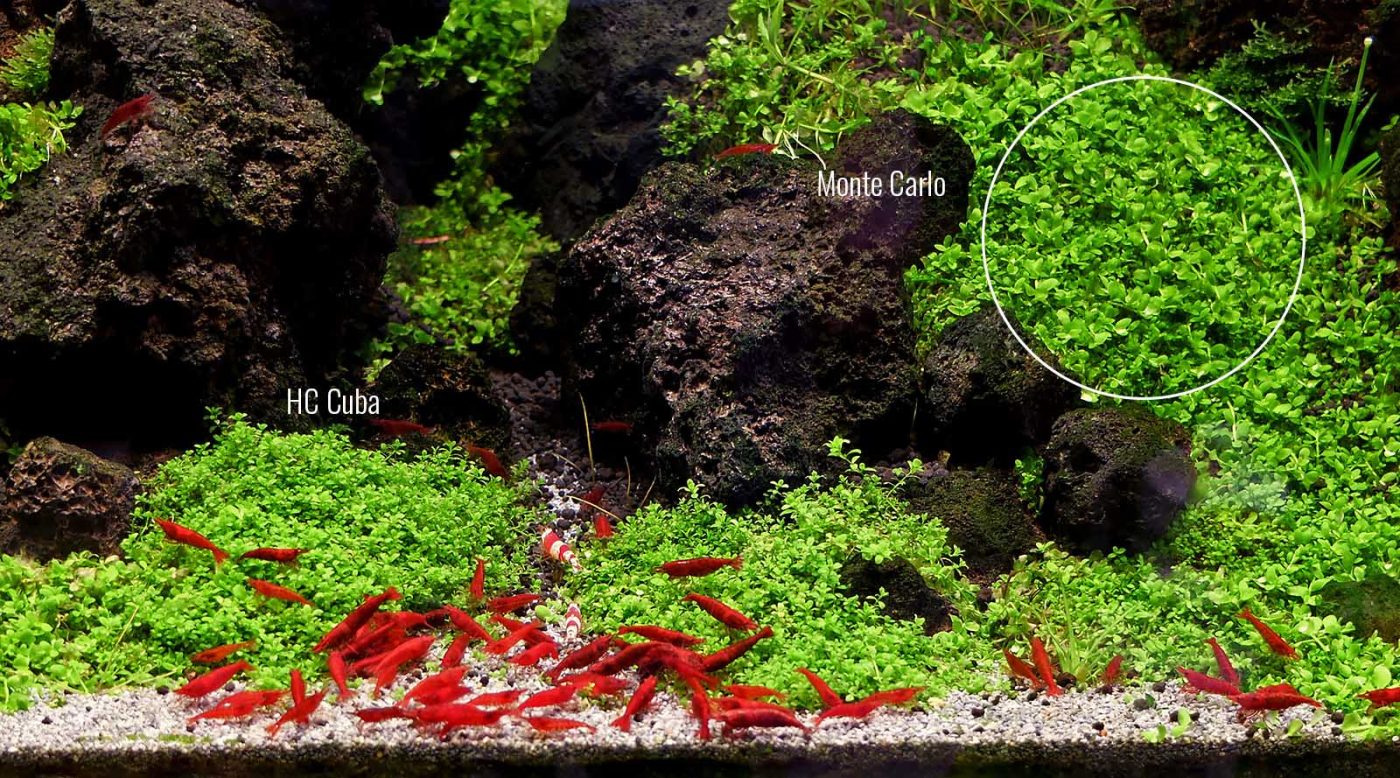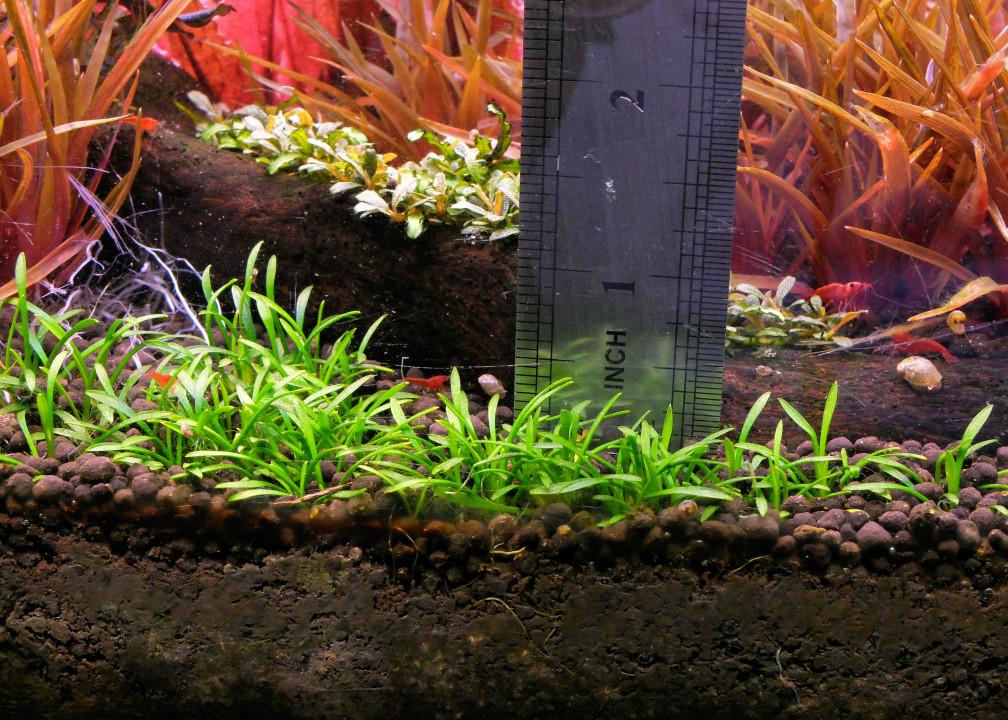Plant Guide
Best Carpeting Plants

The term ‘carpets’ are usually applied to shorter plants that spread across the soil surface using runners. The shorter, finer carpets usually require CO2 to grow well. Because they are small and grow at the substrate level, they tend to be furthest away from the light source and most of them spread faster and grow shorter/denser when there is stronger lighting. Many root better in finer substrates. Most carpets spread quite quickly through runners if conditions are good.
Without injected CO2
Micranthemum “monte carlo’ is by far the best carpet plants for low tech tanks due to its hardiness. Marsilea crenata/hirsuta/minuta also works well but grows slowly. Crenata is the smallest one. Marsilea can take a little bit more shade than Monte carlo. Dwarf hairgrass (Eleocharis ‘belem’) as shown in the picture above has a decent chance as well if you have enough light.To learn how to grow carpets without CO2, click here.
Smallest Leaves

HC ‘cuba’ has the smallest leaves. This makes it great for smaller tanks. A detailed guide to this rather difficult carpet can be found here. For most people, the size difference between HC cuba and Monte Carlo is not distinct from a distance, especially in larger tanks. HC grows much better with high CO2 levels and should not be attempted without CO2.Here is the plant guide to grow HC.
Fastest to grow
Glossostigma elatinoides spreads very fast and is easy to grow in a CO2 injected tank. It is a carpet plant that can be grown without CO2 if you have a ton of light.

HC also grows quickly when conditions are good. Monte carlo and dwarf hairgrass are slightly slower in comparison.
Slowest to grow
Cryptocoryne parva is a short crypt that can be used as a foreground carpet. It is a very slow grower and does not spread on its own, so if you want to cover an area fully, chances are you need to plant a lot of plants or split large sized clumps yourself. There is a mini version (shown below) that is even shorter. However, this is not yet commonly available in the hobby.

source 2hraquarist.com

